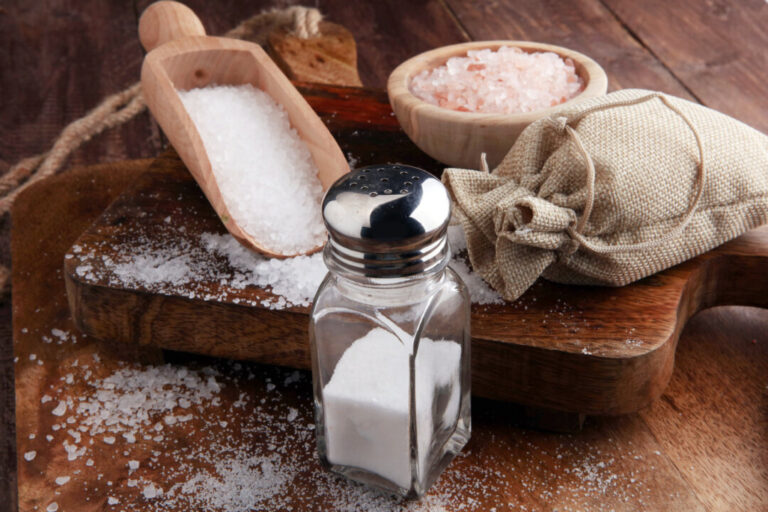
An assortment of different kinds of salt on a wooden table. Shutterstock
Everyone likes to talk about the good ol’ days, and in food circles, we hark back to ancestral diets that were more natural and more nutritious. However, in one respect, modern people enjoy a huge advantage over their ancestors: Everybody in the world today has access to plentiful, inexpensive salt.
An interesting article on the social history of salt, published in a 1963 Scientific American issue, notes that in ancient times, where salt was plentiful, the society tended to be free, independent, and democratic; where it was scarce, those who controlled the salt controlled the people. For example, along the shores of the Mediterranean and the North Sea, farmers and fishermen with access to plentiful salt enjoyed free societies. By contrast, areas of the world that had to import most of their salt or obtain it from small, isolated sources show a more autocratic pattern, a history of frequent conflict, monopoly, and all-powerful rulers. In the ancient river valley civilizations of the Nile, Babylon, India, China, Mexico, and Peru, the kings and priests maintained their rule and obtained their income through their monopoly of salt, on which the population depended for their survival.






